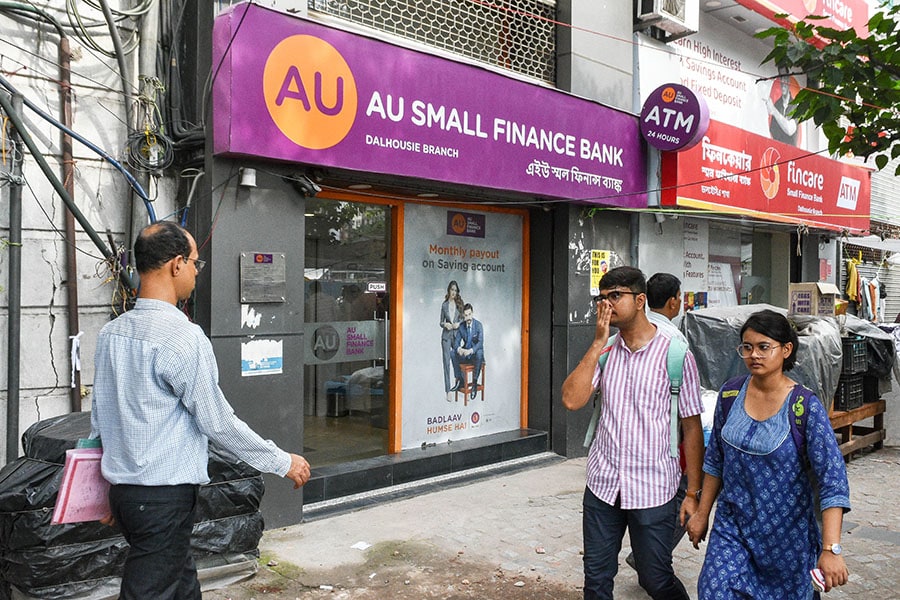
Fincare merges with AU Small Finance Bank to create pan-India SFB with diversified portfolio
AU stock down 8 percent intraday as deal valuation seen as expensive, say analysts
 The respective boards of AU Small Finance Bank and peer Fincare Small Finance Bank had met on Sunday to approve an all-stock merger of the two entities. Image: Debarchan Chatterjee/NurPhoto via Getty Images
The respective boards of AU Small Finance Bank and peer Fincare Small Finance Bank had met on Sunday to approve an all-stock merger of the two entities. Image: Debarchan Chatterjee/NurPhoto via Getty Images
The respective boards of AU Small Finance Bank and peer Fincare Small Finance Bank had met on Sunday to approve an all-stock merger of the two entities. This marks the second such development in India’s small finance bank (SFB) space in recent weeks, after fintech Slice entered the banking space with its merger with troubled North East Small Finance Bank on October 4 this year.
The merger terms indicate that Fincare SFB shareholders shall receive 579 shares in AU SFB for 2,000 shares of Fincare SFB. Post-merger, existing shareholders of Fincare SFB shall hold around 9.9 percent in AU SFB.
On news of the merger, the AU SFB stock fell as much as 8.01 percent to an intraday low of Rs630.8 in morning trade at the Bombay Stock Exchange (BSE), before recovering to Rs662.15 in afternoon trade, still down about four percent. Analysts say the deal is not coming cheap, in view of a premium cycle which the microfinance sector is witnessing.
“At 3x BV FY25E, AU is expensive because its RoA is equal to/lower than peers including ICICI, HDFC Bank and IIB, which trade cheaper,” Nuvama brokerage said in a note to clients.
For AU SFB, the deal will mean getting a diversified portfolio and a better reach. The merged entity will have more than 98 lakh customers, pro forma gross advances of Rs75,570 crore, more than 43,000 employees, and 2,334 touch points across 25 states and union territories.








